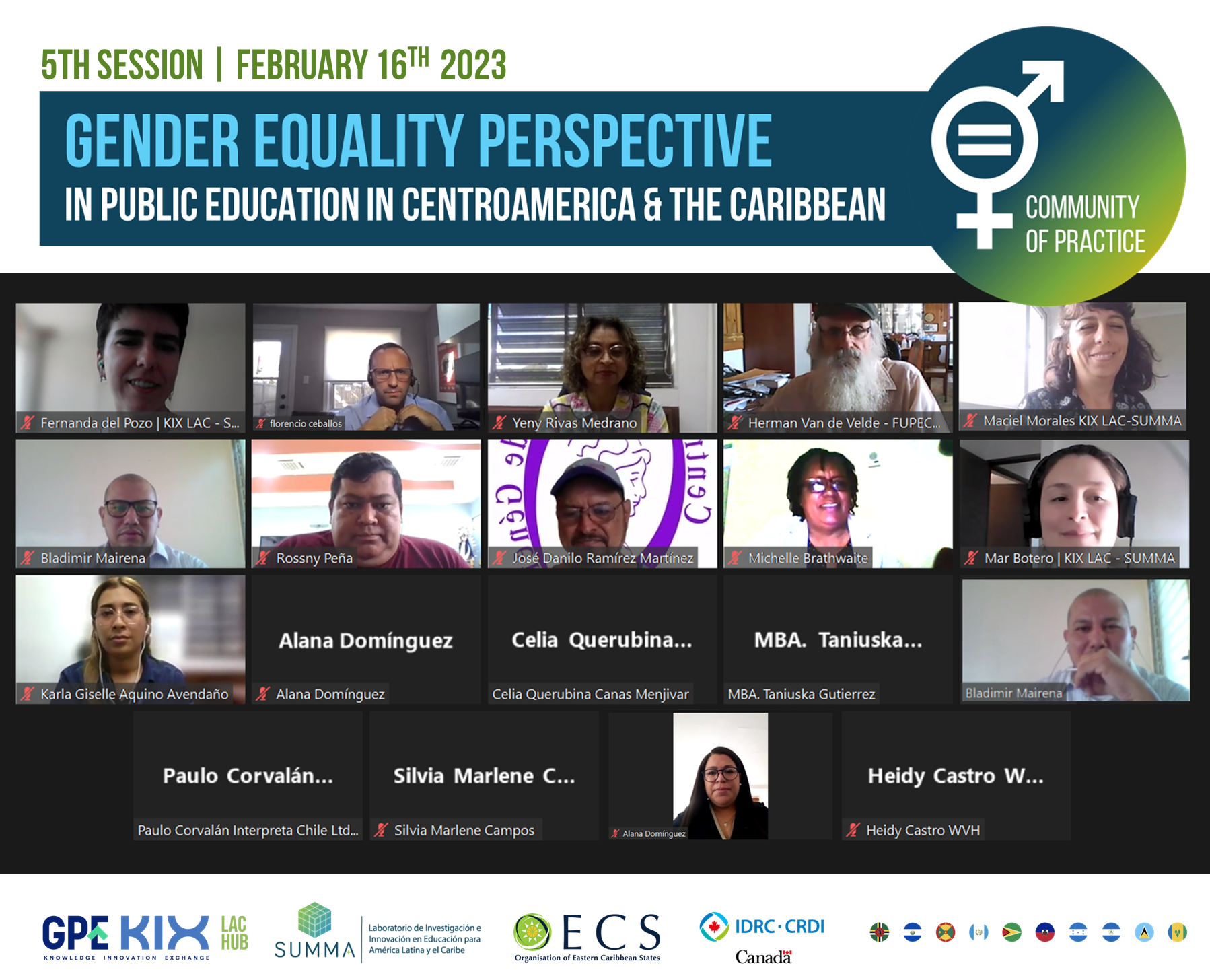
The KIX LAC Community of Practice on Gender and Education held its last session of this first cycle, where a summary of meetings was made, and Bladimir Mairena from Fe y Alegría Nicaragua was invited to speak about the integration of gender perspective in Peer Tutoring methodology.
Maciel Morales Aceitón, Fernanda del Pozo, KIX LAC researchers, and Yeni Rivas, Gender Manager for the Ministry of Education of Honduras, along with community organizers, welcomed the closing of the cycle and recounted the issues addressed during the sessions.
The first session welcomed the community and focused on learning and defining basic concepts regarding the meaning of gender equality. During the second meeting, the community worked on the design and implementation of initiatives with a gender perspective in KIX LAC countries, emphasizing questions such as: What do we understand by gender violence in educational systems? And, in which areas do we observe violence and inequalities? Subsequently, the third meeting focused on educational policies for teacher training with an equality perspective, where participants were able to answer questions about the advances or setbacks that they observe in their own countries in terms of teacher training policies with a gender perspective, and the types of situations generated. Finally, during the fourth session, work was done on the development of pedagogies with equality perspective, observing the areas where sexism still occurs in educational systems, and contributing ideas on how this situation can be changed from the teacher’s role.
Next, Bladimir Mairena from Fe y Alegría Nicaragua, presented the guide, “Integration of Gender Perspective in the Peer Tutoring Methodology”, which is based on the concept that talking about gender pedagogy implies a reflection on educational practice, allowing the deconstruction of the knowledge, attitudes and abilities that generate inequalities, and the reproduction of patriarchal cultural patterns that seeks to deformalize situations of violence and allow people’s freedom of expression.
Finally, the organizers thanked members of the community for their active participation, and highlighted the wealth of having a great diversity of countries talking about gender diversity, their realities and common problems, for it is the only way to advance in the construction of new policies and ways of educating future generations.
